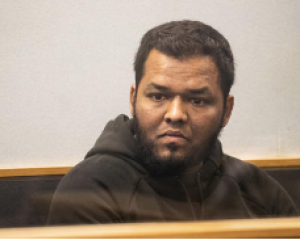Announcing the policy in Hamilton this morning, party leader Christopher Luxon said his message to young offenders was that under National they would face consequences for their actions.
"No place is immune from the youth crime wave, but some are being hit harder than others," he said. "Enough is enough."
The policy has four main parts:
•Targeting serious repeat offenders by creating a new Young Serious Offender (YSO) category for those aged 10 to 17 who had committed at least two serious offences including ram raids, armed burglary or serious assault. The category lasts for two years and can carry consequences including electronic monitoring, community service, or being sent to Young Offender Military Academies.
•Young Offender Military Academies, to be set up by the Ministry of Justice in partnership with the Defence Force, for young serious offenders aged 15 to 17 to spend up to a year. They will include schooling, counselling, drug and alcohol treatment, mentoring, and cultural support, and a case worker will be assigned to the family.
•Targeting gangs through already announced policies including banning gang patches, insignia and gatherings in public places, and additional search powers for firearms.
•Funding community groups including iwi and those providing rehabilitation programmes, and assigning each young offender who has completed their time at one of the military academies to one of these groups "to provide intensive support to help their reintegration back into the community".

The policy has been costed at a total of $25m a year for four years, including $15m a year in new funding for setting up and running the military academies, and $10m a year in reprioritised funding for community providers as part of National's "social investment" model.
Luxon said the youth justice system worked well most of the time, with 80 percent of first-time offenders "dealt with quickly and put back on the right path", and the new policy would tackle the more serious repeat criminals including the "ringleaders" of ram raids.
"National is the party of law and order and we will not ignore the serious challenges that New Zealand faces," he said.
Latest data suggests ram raids are becoming less frequent, despite a slow rollout of the government's countermeasures fund.
However, rates are still high - with seven stores in Waikato hit in a single night at the end of last month.
The military academies would be set up to handle an estimated 60 offenders a year.
"The academies will provide discipline, mentoring and intensive rehabilitation to make a decisive intervention in these young offenders' lives," a written statement said.
The boot camp idea is similar to the 'Fresh Start' law National passed while in government in 2010, although that was later scrapped after chief science advisor Peter Gluckman concluded the following year they did not work and had high recidivism, citing local and international evidence.
"Military activity camps for the most serious repeat young offenders will teach self-discipline, respect and responsibility, with mentoring, parenting and drug and alcohol rehabilitation programmes to address the causes of offending," then-social development minister Paula Bennett had said at the time.
Despite having landed on the scrap heap, National revived a boot camp-style policy its 2017 election campaign under leader Bill English. Despite winning a majority of seats in that election, it was Labour that was able to form a government with the support of the Greens and New Zealand First.
ACT leader David Seymour said he welcomed the announcement, as it was "showing support for our policy of ankle bracelets for youth offenders".
"ACT first announced this policy in August. National has gone back and forth on whether it supports it, with National MP Erica Stanford saying the policy 'breaks her heart'," Seymour said.
"It's great to have clarity from National today it does support the policy."
He questioned whether the Defence Force would want to "babysit 15-year-olds who don't want to be there", but welcomed the idea of a "secure facility for kids who breach electronic monitoring".













